Our Election Commission's critical failings

Chief Election Commissioner Kazi Habibul Awal's latest plea to the parties to solve the ongoing political crisis is quite intriguing. Though his admission that a political crisis really exists is at odds with the government's claim of a conducive environment, his argument that the commission neither has the capacity nor the mandate to resolve it is only reneging itself of authority and responsibility. If the EC believes that there's a crisis which makes ensuring a free and fair election impossible, how can it justify proceeding with holding an election without resolving the crisis?
The EC's much publicised dialogue with all the registered parties took place after the 90-days countdown began till the 12th national election. Now, the EC stands to have sufficient legal authority to ask the executive branch for taking all necessary steps to create a fair and competitive environment. Many observers had thought that, ahead of the dialogue, the EC would take required steps to enable BNP to make its decision freely about joining the dialogue according to their party rules and policies. But in reality, the EC felt it had fulfilled its duty by delivering the invitation letter to an empty chair behind the locked gate of BNP's deserted central office.
This action, once again, raises questions about the EC's understanding of the Constitution's Article 126, which unambiguously states, "It shall be the duty of all executive authorities to assist the Election Commission in the discharge of its functions." Given that this requirement of complying with the EC's directives is not subject to any other provision of the Constitution or any other law, we must ask: had the EC asked the executive branch to stop persecuting the opposition?
Though under the existing criminal law, it was possible and generally expected that the detained top leaders of BNP would be entitled to have conditional bail granted, their internment has been deliberately prolonged and made painful with longer remands instead. During a period when the government is supposed to restrict itself to routine work and not engage in any action that undermines or hinders fair competition among potential contenders, are we to assume that the EC has decided to look away and allow free reign to the ruling party? After all, this seems the only reasonable conclusion to draw, unless the government has refused to comply with the EC's requirements.
In the absence of visible action or a clarification on the part of the EC, can anyone be blamed for concluding that the EC is partisan and incapable of performing impartially and independently? Alas, we also struggle to forget the EC's repeated assertions that it has all the required authority and power to ensure a free and fair election.
The Awami League's repetition of its mantra of having elections as per the Constitution has reached such an incredulous level that one of the praesidium members of the party, Faruk Khan—who led his party's delegation at the EC talks—presented a new interpretation of constitutionalism. Faruk Khan said there is nothing in the Constitution that requires BNP's participation in elections. His assertion may be true, but one may also ask where in the Constitution elections effectively disenfranchise the people and guarantee success on the basis of securing nomination from the ruling party.
So, what is an election? And how has it been defined in our laws? Strangely, there is no complete legal definition of elections found in our laws. The only definition can be found in the Representation of the People Order, 1972 (President's Order), Section 2 (vii) of which says: "'election' means election to a seat of a member held under this Order…"
Over the last 50 years, this law has been amended several times, but this incomplete and inadequate definition remained unchanged. Perhaps politicians across the spectrum prefer keeping the term virtually undefined, making it easy to interpret it however it favours them.
But Bangladesh, as a signatory to the International Covenant on Civil and Political Rights (ICCPR) is obliged "to adopt such laws or other measures as may be necessary to give effect to the rights recognized in the present Covenant." Article 25 of the ICCPR provides the clearest stipulation for a genuine election, stating, "Every citizen shall have the right and the opportunity, without any of the distinctions mentioned in article 2 and without unreasonable restrictions: ... (b) To vote and to be elected at genuine periodic elections which shall be by universal and equal suffrage and shall be held by secret ballot, guaranteeing the free expression of the will of the electors;..."
Since the EC admits the existence of a crisis regarding election management, and thinks it should be solved by the parties rather than by the Commission, a boycott by any parties involved in the dispute is bound to face questions of legitimacy. During its tenure, the current EC has conducted hundreds of elections, but almost all of them have largely been contests between "official" and "rebel" nominees of the ruling Awami League.
And in a handful of real contests where popular non-AL figures took part in elections—with or without party nomination—the EC failed miserably to ensure a level playing field or fair polls. Examples of this include the mayoral elections of Rangpur and Cumilla, and the parliamentary by-poll of Gaibandha. There's little doubt that the political crisis is not the EC's lone problem; the Commission also suffers from deficiencies in credibility.
Another glaring example of the EC's incompetency is the recent hosting of current and former top election officials from Saarc countries at the EC. Shockingly, the real host was not our Commission, but a much discredited election observer, Abed Ali, whose organisation—the Election Monitoring Forum—was screened out by the EC only a few months ago from the list of approved local observers.
These election officials from our neighbouring countries, however, have suggested that our EC has all the power it needs to hold a free and fair election. It has never been doubted that the EC is adequately empowered under the law, but the Commission's partisan application in favour of the party in power has made the institution controversial. Unfortunately, seemingly, the EC's independence has already been lost.
Kamal Ahmed is an independent journalist. His X handle is @ahmedka1
Views expressed in this article are the author's own.
Follow The Daily Star Opinion on Facebook for the latest opinions, commentaries and analyses by experts and professionals. To contribute your article or letter to The Daily Star Opinion, see our guidelines for submission.

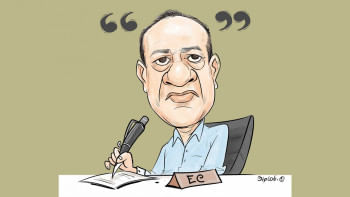
 For all latest news, follow The Daily Star's Google News channel.
For all latest news, follow The Daily Star's Google News channel. 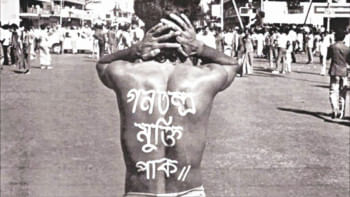
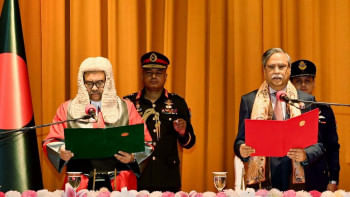
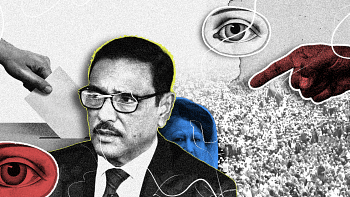

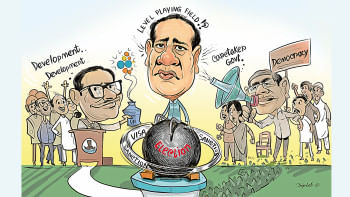
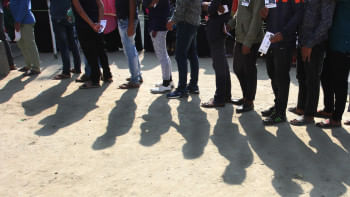







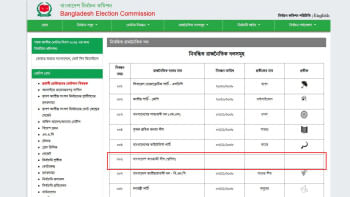
Comments